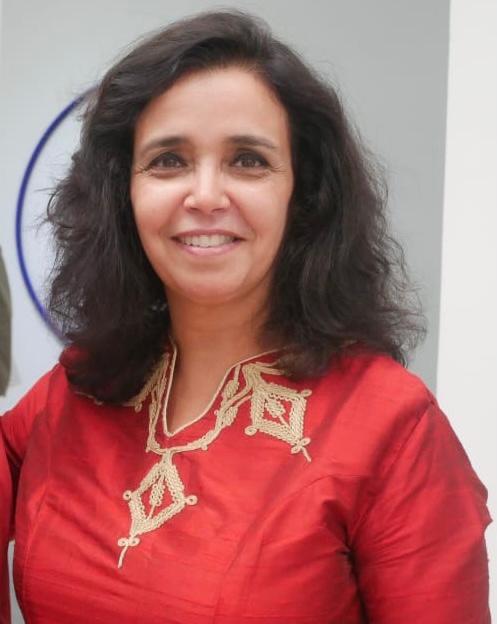It is said that some female saints had the same graces (gifts) as male saints. Among many female saints who could heal the sick, Rabia Al Adawiya is a good example. Her fingers are said to turn into light at night. Touria Ikbal assures this by saying that all that applies to men also applies to women. When it comes to sainthood, the woman also had access to graces. Most female saints were certainly known by the graces that God differentiated them with. Nonetheless, to Gnostics, the enlightened ones and the ones who have reached Union, the most important grace is integrity (righteousness). As to the grace that is out of the ordinary, there is no need to give it much importance as it could become a veil to what is higher and more refined which is integrity (righteousness).
Touria Ikbal adds that Mohammed As-Saghir al-Ifrani said about saint Zahrae al Kouch « The talk about her beauty and righteousness arrived to the sultan Zidane ibn Ahmed al Mansour Adhahbi who showed interest to marry her. He discovered some of her blessings and graces that deviated him from her. Allah protected her from him». According to the popular story, the sultan turned blind when he tried to touch her without her approval. When he asked for her healing, it is said that a white pigeon flew next to her from which she extracted a feather that she positioned on top of the sultan’s eyes. That’s how he gained his sight back. There’s another story about a man disguised as a woman who reached the majlis (council) where she taught other women Quran, hadith and assayr (the way). As soon as his feet crossed her majlis (council), he turned blind as well. The stories about saint Zahrae al Kouch indicate that anyone who tried to sneak up on her or touch her without her approval turned blind immediately. She was the only one who knew how to heal the blinded.
« The truth », says Touria Ikbal, « is that there is a number of female saints I had the chance to meet in person who could perfectly heal the sick with their hands or with herbs by reciting the holy names of Allah and Quran ».
Touria Ikbal also mentions that it is hard for rationalists to accept the existence of true saints, both men and women, who understand what is behind the aql (logic). They can see things with their bassira (insight) and not their bassar (eyesight). It is said that those same saints can bend the earth. They can be present in many places from an instant to another. Among them, one can be in many places at the same time, as if cloned. Therefore, says Touria Ikbal, there are many types of graces, and all those who believe in this field understand that Allah is capable of everything. The prophet Mohammed SAS says: « Believe in God and you will see wonders ». He also said «My skies and earth don’t contain me, what contains me is the heart of the believer ». This shows that the Infinite settles in the smallest organ of the body which is the heart.
Touria Ikbal clarifies that when the earth was emptied of prophets, it complained to God after Mohammed’s SAS departure saying « Will any descendent of Adam come after today as a messenger or prophet? ». Allah answered «Yes, the prophecy is over but the chain of sainthood will continue until God inherits the earth and what is on it. So, in every minute and in every piece of land, there is a saint who remembers the existence of Allah the Almighty and completes what the prophets have left all together ».
For what concerns female disciples -for saints have disciples-, we can consider all educated women, according to Touria Ikbal, as disciples. The truth, says Ikbal, through the learning of Quran and zikr, the relationship between the master and the disciple for both men and women is in reality the relationship that expresses what is between God and his creature. That being said, anyone who is a ‘learner’ is a disciple.
As to the female sufi experience, Touria sees that there is no difference between the two (genders). The shaykh al akbar Muhyidin Ibn Arabi says: «Originally, there was humanity. As to femininity and masculinity, these are two distinct things. It is said in Allah’s verses that humanity was created together from one single origin. Allah is the one and only, his principle is based on unicity and union. All that is multiple and dual comes from oneness. The creation of humanity emanated from one will and emerged from one Creator. He created people from one soul, sheltered in one matrix and attached to one lineage. Thus, the man and woman share the same humanity, the same lineage back to prophet Adam, they are equal in value, attributes, ranks and stations. According to Allah’s saying (may He be glorified): «O mankind, fear your Lord who created you from one soul and created from it its mate and dispersed from both of them many men and women» (Surah an-Nisae), and also «It is He who created you from one soul and created from it its mate that he might dwell in security with her» (Surah al-Âraf) ».
However, states Ikbal, the female saint generally lives in one place and her siyaha (roaming) is done in Allah’s (swt) malakout. We say ‘the worshipers, the ascetics, the roamers’, but the roaming here doesn’t mean wandering and moving from one place to another, it rather means touring in the malakout and contemplating the creature; Here, the roaming of the saint is more important. Touria Ikbal had the chance to meet saints and Gnostics who haven’t left their place during their whole life, among them some have never left their house for over 40 or 60 years. Nonetheless, Ikbal assures that they are among the great roamers, pointing out that the sufi word ‘siyaha’ (roaming) means that and the opposite at the same time. Ikbal describes the woman as a silent engine, she is the one who moves everything but remains stable, she is the one responsible for the stability of the entire family. About the fact that those women are illiterate women who don’t know how to read and write, and that perhaps it’s the reason that kept them from leaving a written legacy, Touria Ikbal denies this while stressing that illiteracy in the sufi sense is an advantage and not a defect, for the prophet Mohammed (saws) was illiterate. The illiteracy of female saints was an advantage that allowed them to receive divine secrets. They received the sciences and Quran through memorization and listening, there was no need for reading and writing as it is the case today. Ikbal sees that it’s not for their illiteracy that they haven’t left a written legacy but because Allah placed them under the veil of concealment for them to remain ‘unknown’. The same goes for saints who, in general, don’t seek to leave a mark behind them as it is the case today. Rather, what is more important for them, is to communicate what Allah the Almighty has given them. Regardless of the communicator, what is more important is the message communicated itself, as if they were links of an endless chain in which the Creator is the first and the last.




